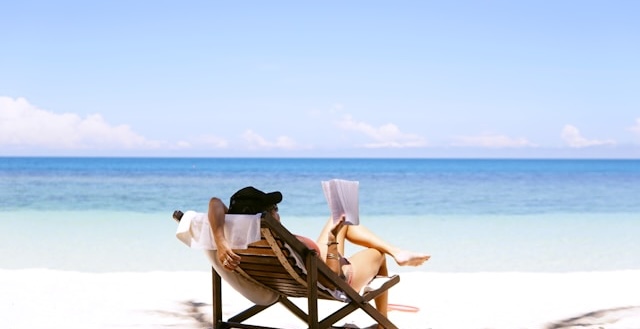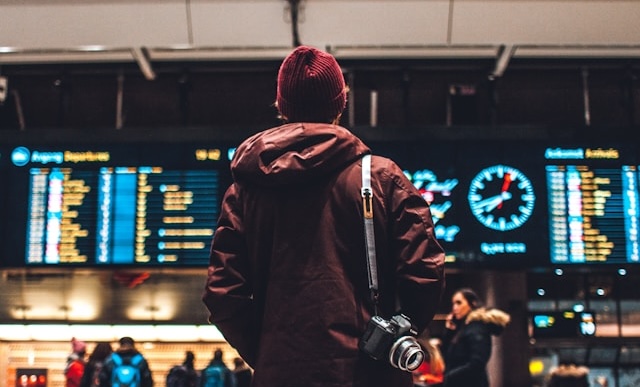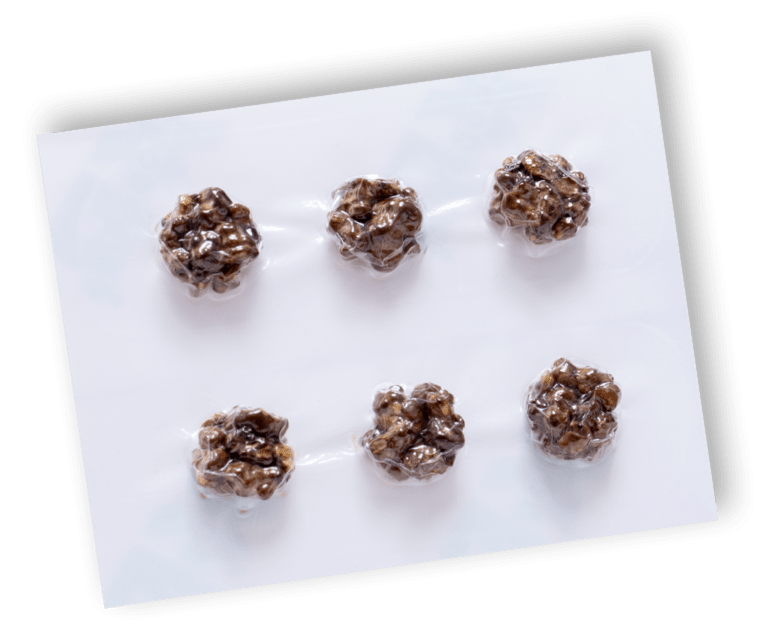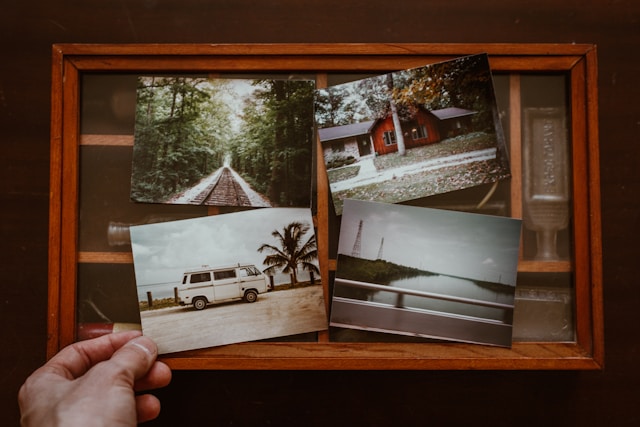When you’re stressed, overworked — or perhaps just vitamin D deficient — a vacation can seem like the ideal tonic. Perhaps you see yourself at famous landmarks, on a sandy beach, or maybe hiking in lush woodland, and feel yourself immediately start to relax. You’re sure that when you return you’ll be refreshed, galvanized, with a new joie de vivre.
Then why is it that some of us return feeling like we need a vacation from our vacation?
Sound familiar? Then you may be suffering from post-vacation burnout.
What Triggers Post-Vacation Burnout?
Sure, post-vacation burnout is a privilege. It means you are able to go on vacation for a start! However, that doesn’t mean it’s not tough. Often, for example, people spend the year saving up for their precious few weeks off during the summer months — and this can lead to unrealistic expectations. The capitalist, rise’n’grind culture we live in means that we are encouraged to fetishize our leisure time, and focus all our energy into having the best time we can, which actually can hinder our enjoyment. When our expectations are not fulfilled we can feel personally hurt — you’ve been looking forward to this all year!

So how can you ensure that your reentry into normal life is as stress-free as possible? Well, there are a few simple steps to help you on your way.
Why do I experience burnout after a vacation?
If you’re actually feeling like you are more stressed at the end of your vacation, you are not the only one. There are a lot of reasons why you may feel this way. These include:
Unrealistic Expectations: As we mentioned above, many people pin all their hopes for rest and relaxation on their vacation. However, expecting a vacation to solve all of your problems is just unrealistic. When you return to reality, it can really get you down.
Travel Stress: Long flights, time zone changes, planning, navigating, getting lost, and staying up later than you usually would can all leave you feeling more worn-out than you did before you left.
Disruption Of Your Routine: Don’t underestimate changes in your sleep pattern, diet, and physical activity when it comes to why you may be feeling drained. Suddenly shifting back to your normal schedule can feel a bit like whiplash!
Doing Too Much: We all want to wring the most out of our experiences, however overpacking your schedule can leave you exhausted and actually less able to enjoy yourself.
Psychological Adjustment: Switching quickly from a relaxed, anything-goes vacation mindset back to a work routine can be a surprisingly tiring mental adjustment, which can be overwhelming and stressful.

10 Tips to Combat Post-Vacation Burnout
Now you understand why you may be feeling the way you do, here are some active steps you can take to avoid this state, so you can return from your holiday feeling rejuvenated instead of ragged.
1. Allow Yourself a ‘Buffer’ Day
Ensure that when you return from your trip, you have a day or two before you have to go back to work. You can use this time to rest, catch up on sleep, unpack, and readjust to your home. This means you can re-enter normality gently, rather than headfirst.
2. Slowly Re-Introduce Routine
Ease back into your regular schedule. Begin by reintroducing your normal morning routine — getting up at 7 30 instead of 10, or eating muesli for breakfast instead of croissants and jam — for example. Re-establish your normal meal times or bed time. Slowing bringing these little structures of reality back can help you to feel in control.
3. Make a Priority List
When you return to work, start with the most important tasks first. Write a list of what needs to be done, identify the most critical jobs, and then tackle them one by one.
4. Utilize Relaxation Techniques if You Need Them
The addition of meditation, yoga, or gentle stretching exercises to your routine can extend the calming effects of your vacation. Even just a few minutes of deep breathing can help you relax.
5. Re/Introduce Microdosing
Maybe you had a psilocybin microdosing routine pre-vacation, but had to put it on pause because you’d be away from home (and airport security are unfortunately not fans of psychedelics in luggage!) Or maybe you haven’t tried it yet, but are keen to give it a go. Well, either way, the time is now. Microdosing can not only boost your mood in general, it can also help you to de-stress and be present in the moment. It can also help with that all-important focus when you return to work. Adding a microdosing routine, be it the Fadiman Method or the Every-Other-Day Method will also contribute to your return to regularity by adding a structure you look forward to.

6. Keep Your Good Vacation Memories Alive
Stay connected to the positive things you experience on your trip. Make time to reminisce and be thankful for what you experienced, Share stories with your friends and family, look at pictures you took, or even write about it to keep your memories alive.
7. Be Kind To Your Body
Your body may have just traveled around the world, up hill and down dale, from airport gate to airport gate (they can be really far apart!) So why not be kind to it? Travel often leads to poor eating habits and dehydration, so drink lots of water and get some healthy food in you! You will immediately begin to feel like yourself again.
8. Start Work With ‘Baby Steps’
Set small, realistic goals when you return to work or study. Accomplishing these things can give you a sense of progress and remind you that you are capable. You could start by going through some emails or taking on an easier project.
9. Hit Up Your Support System
Catch up with the friends you didn’t see while you were away. These people can be a reminder of all the good you have in your normal life, and you can share stories about your trip, and maybe listen to some of theirs too.

10. If You Suspect the Problem is Deeper, Talk to a Professional
If, after a few weeks your feelings of post-vacation burnout persist, there may be a deeper reason for your discomfort. Talk to a therapist or counselor for additional support.





